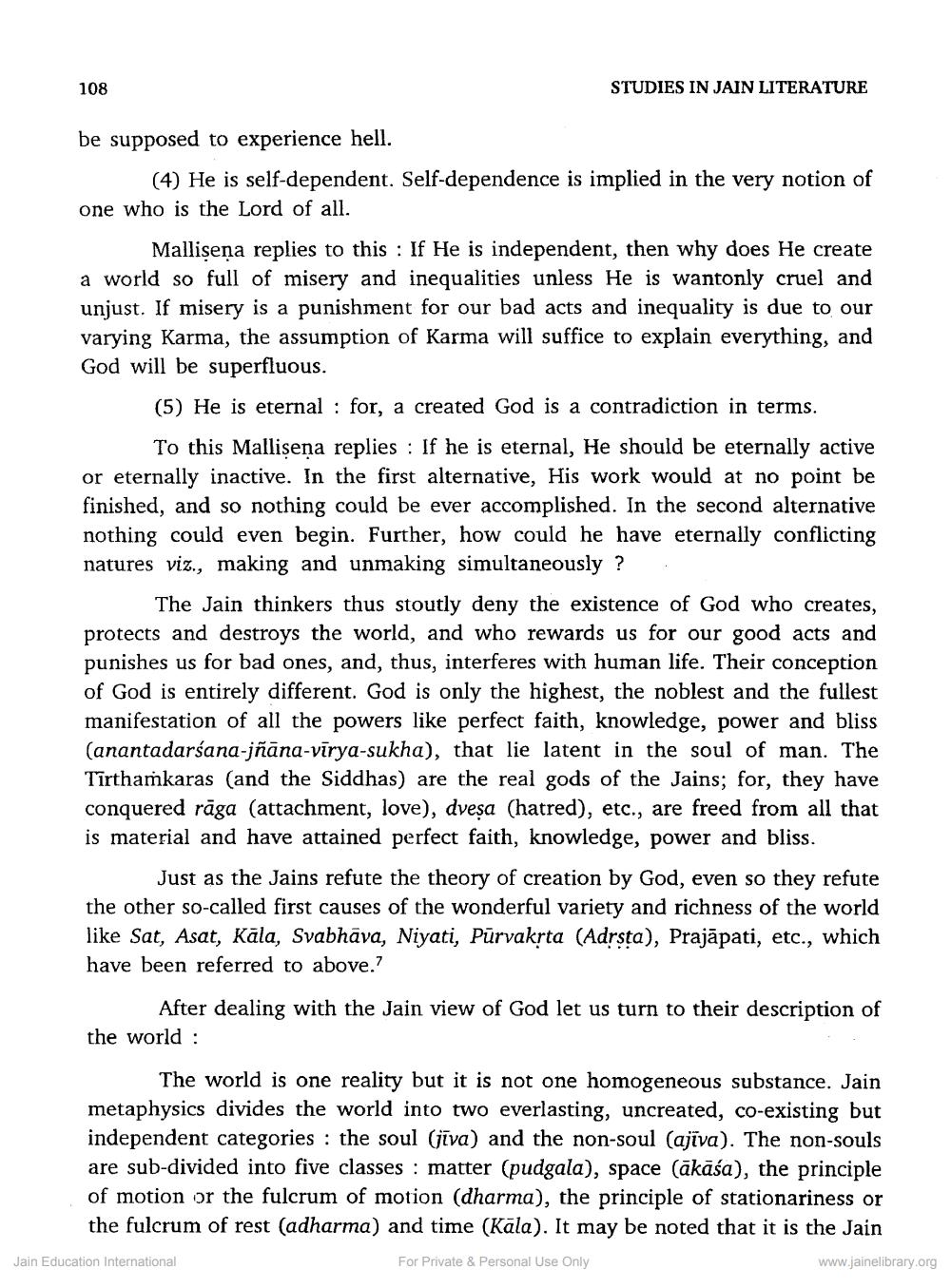________________ 108 STUDIES IN JAIN LITERATURE be supposed to experience hell. (4) He is self-dependent. Self-dependence is implied in the very notion of one who is the Lord of all. Mallisena replies to this : If He is independent, then why does He create a world so full of misery and inequalities unless He is wantonly cruel and unjust. If misery is a punishment for our bad acts and inequality is due to our varying Karma, the assumption of Karma will suffice to explain everything, and God will be superfluous. (5) He is eternal : for, a created God is a contradiction in terms. To this Mallisena replies : If he is eternal, He should be eternally active or eternally inactive. In the first alternative, His work would at no point be finished, and so nothing could be ever accomplished. In the second alternative nothing could even begin. Further, how could he have eternally conflicting natures viz., making and unmaking simultaneously ? The Jain thinkers thus stoutly deny the existence of God who creates, protects and destroys the world, and who rewards us for our good acts and punishes us for bad ones, and, thus, interferes with human life. Their conception of God is entirely different. God is only the highest, the noblest and the fullest manifestation of all the powers like perfect faith, knowledge, power and bliss (anantadarsana-jnana-virya-sukha), that lie latent in the soul of man. The Tirthamkaras (and the Siddhas) are the real gods of the Jains; for, they have conquered raga (attachment, love), dvesa (hatred), etc., are freed from all that is material and have attained perfect faith, knowledge, power and bliss. Just as the Jains refute the theory of creation by God, even so they refute the other so-called first causes of the wonderful variety and richness of the world like Sat, Asat, Kala, Svabhava, Niyati, Purvakta (Adrsta), Prajapati, etc., which have been referred to above.? After dealing with the Jain view of God let us turn to their description of the world : The world is one reality but it is not one homogeneous substance. Jain metaphysics divides the world into two everlasting, uncreated, co-existing but independent categories : the soul (jiva) and the non-soul (ajiva). The non-souls are sub-divided into five classes : matter (pudgala), space (akasa), the principle of motion or the fulcrum of motion (dharma), the principle of stationariness or the fulcrum of rest (adharma) and time (Kala). It may be noted that it is the Jain Jain Education International For Private & Personal Use Only www.jainelibrary.org




